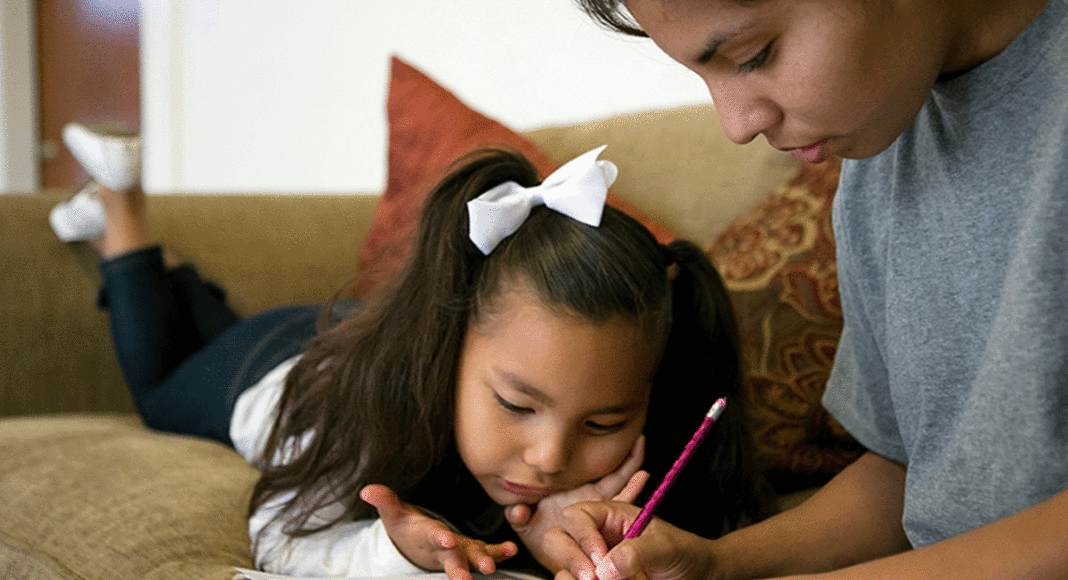Homelessness is a complex problem, which is why there are so many different ideas about how to fix it.
“Homelessness is just as diverse as we are,” explains Pajaro Valley Shelter Services (PVSS) executive director Kimberly Ferm. “Anyone can be homeless for any reason at any time. There’s no one cause for someone to become homeless.”
Fortunately, in Santa Cruz County, there are multiple organizations that provide services to help the homeless community. Four of them are part of this year’s Santa Cruz Gives holiday giving drive, in which GT and its partners are asking readers to contribute to local nonprofits at santacruzgives.org. The almost three dozen organizations participating in Santa Cruz Gives have many different goals, but PVSS, the Homeless Garden Project (HGP), the Mental Health Client Action Network (MHCAN) and the Warming Center Program are focusing this holiday season on improving the lives of homeless families and individuals in Santa Cruz County.
HGP helps give people transitional work, with the goal of getting them working full-time elsewhere, and into a more secure life. They work on an active, functioning farm, and are involved with every aspect, from tilling the soil to selling HGP’s produce and products to the public.
“It’s hard for people to move from homelessness directly into a job. The project is here to make that transition,” says Executive Director Darrie Ganzhorn. “People really need to develop their confidence. People develop a sense of community and belonging, and that helps them in their job search.”
Another factor affecting some members of the homeless community is mental illness—when untreated, with no support system, it can have catastrophic effects, and sometimes those dealing with mental health issues find themselves on the street. MHCAN is a local peer-to-peer organization that seeks to help them gain control of their lives.
Through Santa Cruz Gives, MHCAN is hoping to fund a shower room for its members. While a majority of MHCAN members do have a home, group organizers say, some individuals they work with—housed or not—have issues with daily living skills like hygiene to the point where it affects how they are perceived by others. Sometimes a lack of self-care can come from a history of child sexual abuse, negative self-image, or other issues that increase feelings of vulnerability. MHCAN wants to remodel a small room into a shower room designed to offer a safe space.
The Warming Center, meanwhile, helps the homeless with a different kind of vulnerability. On a cold night, the Warming Center will give those who have nowhere to go a place to stay, and a meal—and possibly save their life in the process.
“There are far too few shelter beds, and they don’t allow people with dogs, or large personal property, often not even bikes,” says program director and manager Brent Adams. “We’ve made a pledge to never refuse anyone. We pack people in pretty tight sometimes.”
The all-volunteer organization often gives out blankets and clothes, and sometimes will even send drivers out to pick people up on cold nights.
PVSS deals with yet another source of vulnerability and homelessness. Women and children often have no home to go to in situations when there’s divorce or an abusive spouse, and PVSS offers transitional housing. They offer an emergency 90-day program for women and children, and there are also one- and two-year programs for homeless families. PVSS isn’t just housing, it’s also a comprehensive program to develop skills for self-sufficiency.
“The programs we have, we would say is a tough love approach. It’s very structured, accountable, and client-driven. The clients set their goals with the case managers. Whatever their goals are, we work with them to make them accountable,” says Ferm.
Saving money, for instance, is required. The case manager even works with the clients by reviewing their expenditures, pay stubs and receipts to help them develop the skills to take care of themselves.
“We help them to know the importance of taking good care of property, as well as taking care of your health, yourself, and your housing and your family,” says Ferm. “Those are the core values that we have.”
Go to santacruzgives.org to give to these groups, and many others, through Dec. 31.











